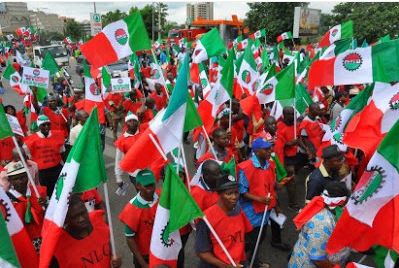
Abuja — Nigeria’s labour unions told President Bola Tinubu on Thursday that soaring prices and a weakening currency were biting hard as they pushed for a new minimum wage they say will help cushion workers from the worst cost of living crisis in generations.
WHY IT’S IMPORTANT
Labour unions suspended a strike in early June to give negotiations on the new minimum wage a chance but a failure to reach an agreement could prompt unions to call for new action.
Leaders in Nigeria are mindful of deadly riots in Kenya that forced the government to backtrack from raising taxes and are trying to balance between appeasing restive workers and borrowing more to meet wage demands.
Any major disruptions to economic activity could tip over an economy struggling with tepid growth, low production of oil, its main export, and high cost of living.
BY THE NUMBERS
The government is offering a monthly wage of 62,000 naira ($40) but unions want 250,000 naira ($160) and have asked authorities to roll back increases in gasoline and electricity prices. The last minimum wage was agreed in 2019.
WHAT’S NEXT?
The labour leaders said they had agreed some issues with Tinubu, which they did not disclose, and added that they would reconvene another meeting in a week.
($1 = 1,560.00 naira)
*Felix Onuah, editing: MacDonald Dzirutwe – Reuters



